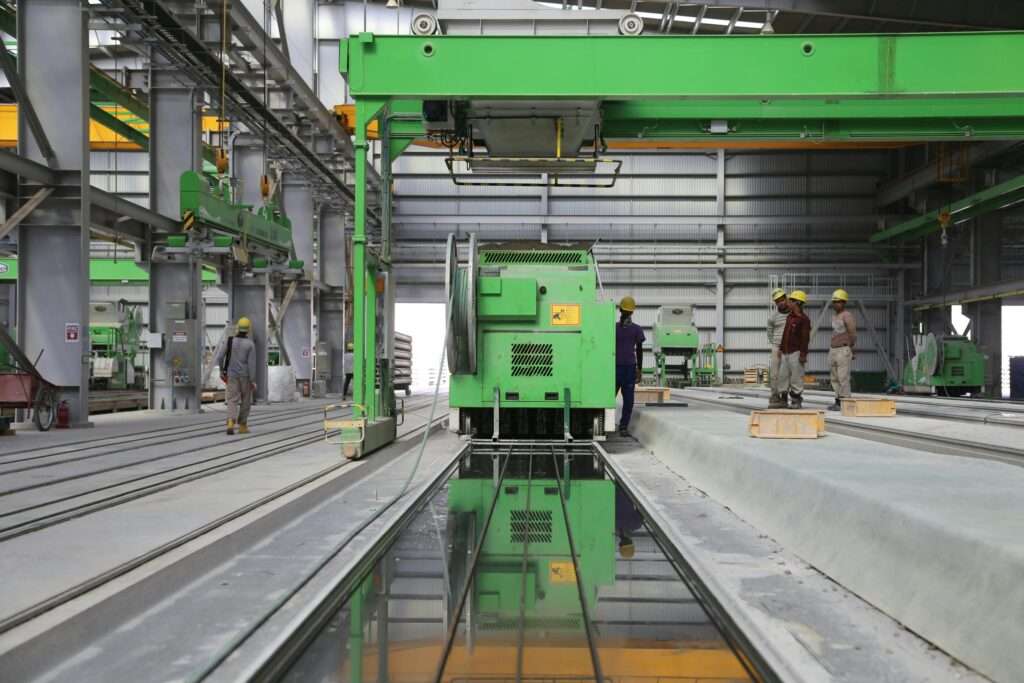Overview of the Construction Industry in Canada
Canada’s construction industry is one of the most robust and essential sectors of the national economy. It contributes significantly to infrastructure development, housing, commercial real estate, and public utilities. With growing investments in urban expansion, green buildings, and infrastructure renewal, the need for skilled construction workers is surging. From bustling metropolitan areas like Toronto and Vancouver to developing regions across Alberta and Atlantic Canada, the construction sector offers widespread opportunities.
Construction worker jobs in Canada appeal to both domestic and international job seekers, especially those looking for practical, well-paying work. These roles span a wide range of responsibilities—from general labor to specialized trades—and provide a pathway to long-term employment and advancement.
In-Demand Construction Roles Across Canada
The construction field includes a broad spectrum of occupations. While general laborers are always needed, there is especially high demand for skilled tradespeople. Here are some of the most sought-after roles:
General Construction Laborers
These workers assist in site preparation, debris removal, material handling, and basic construction tasks. It is a common entry-level position that requires physical stamina and a basic understanding of construction tools and safety practices.
Carpenters
Carpenters construct, install, and repair structures and fixtures. They are essential for both residential and commercial projects. This trade requires apprenticeships and certification, but it also offers attractive pay scales and advancement opportunities.
Electricians
Licensed electricians are critical to both new construction and maintenance projects. They install wiring, panels, and lighting systems, adhering to Canadian safety codes. This role is well-compensated and typically requires Red Seal certification.
Plumbers and Pipefitters
Plumbers install water, sewage, and drainage systems. Pipefitters work with high-pressure systems in industrial settings. Both roles require vocational training and offer high earning potential.
Heavy Equipment Operators
These professionals operate excavators, bulldozers, loaders, and other machinery. Due to the technical nature and risk of this work, employers seek individuals with experience and certification.
Bricklayers, Roofers, and Painters
While often project-specific, these tradespeople are vital for completing construction phases. They may work on residential properties, commercial buildings, or public infrastructure.
Educational and Certification Requirements
One of the appealing aspects of construction jobs is that many roles do not require a university degree. However, certifications, apprenticeships, and vocational training are essential for specialized trades.
In Canada, trade certification is often regulated at the provincial level. Programs such as the Red Seal Program allow certified workers to practice across provinces. Job seekers should explore trade schools or apprenticeship programs that align with provincial regulations.
Common requirements include:
- High school diploma or GED
- Enrollment in a registered apprenticeship program
- On-the-job training
- Trade certification (e.g., Red Seal endorsement for electricians, carpenters, plumbers)
Safety certifications such as WHMIS (Workplace Hazardous Materials Information System) and First Aid/CPR are also frequently required.
Construction Job Searches
Construction-related searches that generate high advertising revenue often include specific and intent-rich keywords. Incorporating these can improve visibility and monetization potential. Examples include:
- “Construction worker salary in Toronto”
- “Red Seal certified jobs in Canada”
- “Skilled trades employment Canada”
- “Best cities for construction jobs in Canada”
- “Heavy equipment operator salary Canada”
- “Immigration jobs construction Canada”
- “Carpentry apprenticeship Ontario”
Using these keywords not only boosts SEO performance but also attracts job seekers who are further along in the employment decision-making process.
Working Conditions and Environment
Construction jobs are physically demanding and often take place outdoors, exposing workers to varying weather conditions. However, they also offer strong camaraderie, teamwork, and the satisfaction of seeing tangible results.
Typical working conditions include:
- Long hours, often starting early in the morning
- Shift work, particularly on large projects
- Use of protective equipment (hard hats, steel-toe boots, goggles)
- Emphasis on health and safety regulations
Some regions may require remote work or travel for infrastructure projects in less populated areas. Employers typically provide housing and travel allowances for such roles.
Salary Expectations and Benefits
Salaries vary depending on experience, role, region, and union affiliation. General laborers may earn around CAD $18 to $25 per hour, while skilled tradespeople such as electricians or heavy equipment operators can command rates from CAD $30 to $50 per hour.
Unionized positions often come with comprehensive benefits including:
- Health and dental coverage
- Pension plans
- Paid vacation and sick leave
- Job security and grievance procedures
Regional Demand and Opportunities
Ontario
Home to Canada’s largest population and most significant urban centers, Ontario offers numerous construction projects in cities like Toronto, Ottawa, and Hamilton. Public transit expansion, housing developments, and infrastructure upgrades are fueling job growth.
Alberta
Oil and gas sector investments lead to a high demand for industrial construction workers. Fort McMurray, Calgary, and Edmonton frequently post opportunities for pipefitters, welders, and heavy equipment operators.
British Columbia
Vancouver and surrounding cities have a booming housing market and major infrastructure projects. Green building initiatives and sustainable construction methods are also on the rise.
Quebec
Bilingual workers are especially in demand here. Projects in Montreal and Quebec City require a mix of residential and commercial expertise, with many roles available in concrete finishing and carpentry.
Atlantic Canada
Emerging opportunities exist in Halifax and other coastal cities as part of economic revitalization and marine infrastructure development. Seasonal construction work is common, especially in the summer months.
Immigration Pathways for Construction Workers
Canada welcomes skilled workers through several immigration pathways, and construction jobs are often considered in-demand under programs like:
- Express Entry (Federal Skilled Trades Program)
- Provincial Nominee Programs (PNPs)
- Atlantic Immigration Program
- Temporary Foreign Worker Program
International candidates with experience in trades may also benefit from employer sponsorship and permanent residency options.
Advancement and Career Growth
Construction work offers long-term career potential. Experienced workers can move into supervisory roles, site management, safety inspection, or start their own contracting businesses.
Additional certifications, leadership training, and familiarity with construction software tools (like AutoCAD, Procore, or BIM platforms) can enhance employability and salary potential.
Advanced roles include:
- Site Supervisor
- Project Manager
- Health and Safety Officer
- Estimator
- Construction Consultant
Construction workers who upskill strategically can transition into less physically demanding yet highly compensated positions later in their careers.
Safety Standards and Worker Protections
Workplace safety is a cornerstone of the Canadian construction sector. Each province enforces its own Occupational Health and Safety Act, mandating employer responsibility for training, equipment, and safe job sites.
Workers are encouraged to:
- Attend safety orientations
- Use proper PPE
- Report hazards or unsafe practices
Unions such as LiUNA (Laborers’ International Union of North America) and IBEW (International Brotherhood of Electrical Workers) play a critical role in promoting worker rights and safety education.
Gender Diversity and Inclusivity in Construction
Historically male-dominated, the construction industry is evolving to attract a more diverse workforce. Programs are being introduced to support women, Indigenous peoples, and other underrepresented groups.
Initiatives such as Women Building Futures and provincial grants for apprenticeships aim to foster a more inclusive industry. Companies are also introducing flexible schedules, parental leave policies, and anti-harassment training.
Conclusion: Building a Strong Future in Canada
Construction worker jobs in Canada offer a compelling career path for those who enjoy hands-on work, value job security, and seek growth opportunities. With high demand across provinces and in various specializations, the sector provides competitive wages, benefits, and immigration pathways.
For newcomers, students, or tradespeople looking to transition or advance, construction remains a high-opportunity industry. As Canada continues to invest in infrastructure, housing, and sustainable development, construction workers will play a pivotal role in shaping the nation’s future.



